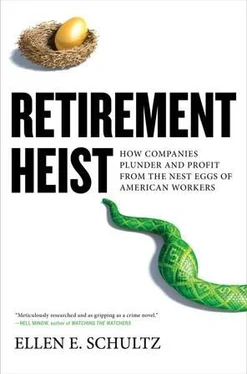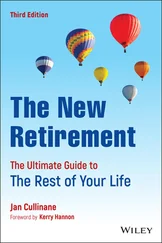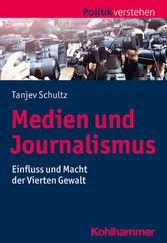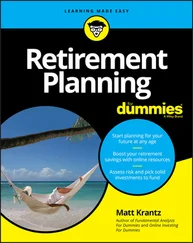“Rigid and irrational legal restrictions trap these surplus assets in the pension plans and prevent them from being used productively,” maintained Mark Ugoretz, the head of ERIC, a group that lobbies for employers on benefits matters.
Complaining that the pension assets were “locked up,” employers had asked the ERISA Advisory Council to study the issue. Employers had good reason to believe that the council would recommend changes they wanted. The council consists of fifteen members, appointed by the secretary of labor, to advise the department on benefits matters.
The revolving cast includes representatives from think tanks, academia, unions, and pension administrators. But the council has often been dominated by corporate representatives, who influence the choice of topics and suggest which expert witnesses should testify. Nine of the fifteen appointed members of the council at the time were representatives of employers and financial firms, and many of the experts they invited to testify not surprisingly shared employers’ views.
At the 1999 hearings, executives from DuPont, Northrop Grumman, and Marathon Oil strongly advocated allowing employers to withdraw pension money to pay for their retiree health benefits. This would not only be good for retirees, they said, but good for retirement security overall.
John Vine, a lawyer from Covington & Burling, a Washington law firm that had advised clients on myriad methods to monetize their pension surplus, discussed ways employers could extract the assets in mergers or use them to pay severance costs or even to “provide enhanced pension benefits to a subclass of the plan’s current participants” (e.g., the employer’s executives).
Michael J. Harrison, human resources vice president at Lucent Technologies, the giant AT&T spin-off, liked the idea of using surplus assets to pay executive benefits. (The language was less blunt; he and others advised using surplus assets to pay for pension benefits “in excess of qualified plan limits (such as 415 and 401[a][17] limits).”)
Like other witnesses, he maintained that allowing employers to drain the surplus assets from pension plans would actually enhance retirement security. “We believe making excess pension assets more freely available for other constructive purposes would encourage more companies to voluntarily sponsor defined benefit pension plans and encourage companies to enhance participants’ security by funding these plans at a higher level,” he testified.
DuPont’s chief actuary, Ken Porter, minced no words regarding on whose behalf the company managed the pension plans: “As a publicly traded company, DuPont has a fiduciary responsibility to its owners. We have been entrusted with the owners’ assets with the expectation that we will allocate our resources efficiently and appropriately to provide for all of our corporate obligations,” he said.
A witness from the AFL-CIO had the temerity to suggest that employers use the surplus to increase benefits or provide cost-of-living increases for retirees. Porter dismissed this notion, saying that using the surplus to pay benefits would dilute reported earnings. “Accordingly, business competitiveness issues, not pension asset values, dictate when and whether benefits levels are changed.”
Ron Gebhardtsbauer, senior pension fellow of the American Academy of Actuaries, echoed this trickle-down concept, testifying that if employers could use pension assets for their own benefit, it would actually help the employees and retirees. “Strengthening employer solvency can create more security for the pension plan… surplus assets could be helpful to strengthen a company at an important time… the best insurance is a strong employer.”
The experts who testified also included consultants from Watson Wyatt Worldwide and Mercer, two of the largest global benefits-consulting firms, which for years had helped large employers use all these strategies to tap their pension plans like piggy banks. They felt that these were all great ideas, as did the chairman of the working group, Michael J. Gulotta. As chief of AT&T’s actuarial consulting unit, he had helped the company and many others convert billions of dollars in its pension assets into company assets. They all had much to gain by helping employers further unlock the riches in their pension assets, and they already had plenty of experience doing so.
Not surprisingly, their final report concluded that “for the good of America,” the government ought to loosen the withdrawal rules. The irony is that all these employers, and many others, had already been quietly siphoning billions from their pension plans for years. They were merely seeking “reforms” that would open the spigots even further.
The arguments sounded plausible: Pension plans already had too much money and would only become even more overstuffed. After all, the stock market, like real estate, would only go up: The economy was buzzing, the government had a massive budget surplus, and interest rates were low.
One of the few dissenting voices was David Certner’s. AARP’s legislative affairs watchdog, Certner was adamant that pension assets be used for no purpose other than providing pension benefits. “The funds are put into the pension trust for the exclusive benefit of the participants,” he said at one of the council’s meetings.
Allowing employers to use the money for anything else would put the plans at risk, Certner warned, because employers would be tempted to skim off excess funds in good times and then face shortfalls when the markets declined. He warned that the recent bull market would end and that changes in the economy, interest rates, or market returns could quickly erase the surplus, putting individuals at risk. If the plans failed, participants could see a big chunk of their benefits wiped out.
If his warnings sound familiar, it’s because every single one of Certner’s predictions came true. But nobody was listening. And nothing has changed. These are the strategies employers were using—and have continued to use—to drain their pensions.
One common use of pension assets has been to finance restructurings. In 1994, Bell Atlantic, formed after the breakup of the Baby Bells in the early 1980s, was transforming not only its technology but also its workforce. In 1994, it had 100,000 employees, many of whom had been on the job for decades. This was exactly the cohort that many industries, including the fast-changing telecom sector, were eager to whittle down. Workers were in their peak earnings years, and the value of their pensions, which was based on tenure, was about to spike. Severance is typically paid for with cash, so shedding this large cohort would be costly.
Fortuitously, Bell Atlantic had a lushly overfunded pension plan and, like many companies, it offered to sweeten the pensions of those it was letting go. Over the next six years the company used $3 billion in pension assets to finance early-retirement incentives for 25,000 managers. Using pension surplus not only saved the company cash but saved payroll taxes, because, unlike severance pay, money paid from a pension in lieu of severance isn’t subject to the 7.65 percent Social Security (FICA) taxes.
Pension law doesn’t allow companies to use pension assets to pay severance, so companies characterized the payments as “termination benefits,” “shutdown benefits,” or “additional pension credits” that might provide people additional years of service or the equivalent of, say, an additional year of an employee’s pay.
Bell Atlantic merged with GTE (formerly known as General Telephone & Electronics Corp.) in 2000 and changed its name to Verizon Communications, but the pension withdrawals continued. Over the next five years, Verizon continued to pay for retirement incentives using pension assets, even though the surplus, which had peaked at $24 billion in 2000, had shrunk to only $1.7 billion by the beginning of 2005, thanks to market losses and company withdrawals.
Читать дальше












